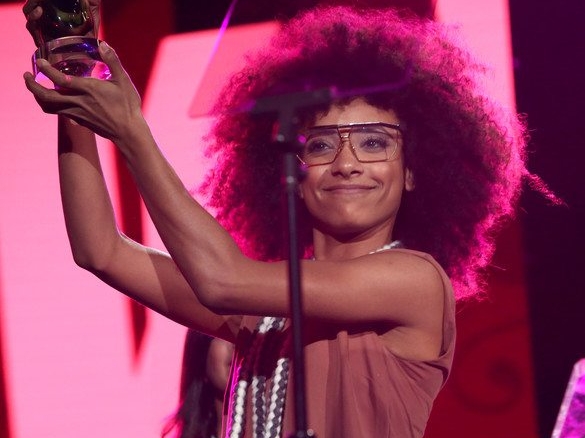Andrew Goodrich makes a good point about taking the online offline at The Music Think Tank. He reminds musicians that even though there’s a lot to be found online in terms of reaching fans, the best connections still happen offline and generally at a live performance.
For a music consumer to take the next step beyond just ‘liking a song’, they need some kind of context for that music. Context – stories, memories, experiences, relationships – is what allows fans to ‘emotionally own’ a band.
Nice food for thought. I think it’s something that resonates well with the music we love here at GFM — that we feel a sense of ownership, and accountability, for the songs and musicians we love. I mentioned in my What Is Grown Folks Music? post that I like to call these qualities that make that emotional connection to music as intimacy, resonance, and soul. Resonance, or context as Goodrich puts it, is about the engagement between an artist and listener, but it’s also music that’s meant to be shared, cultivated, and loved across generations and communities.
So the question is, is online only meant to bring people to offline experiences, or is it just as capable of making deep, emotional connections? As Goodrich notes, it’s incredibly easy to fill up an online portfolio by hitting every Music 2.0 site out there (feel free check out our Artist Tools posts for tips on making the most of the various sites out there and which ones to target) and getting your name out there, but it’s harder to make a real dent. So you have 9 thousand friends on MySpace and a zillion plays . . . it’s good promo, but have you really impacted your fans?
I think this is one of the biggest issues artists are faced with when they go online — how do they reconcile the offline with the online? Some tend to divy up their fans as online fans and offline fans; some setup a MySpace or simple site with some tracks, but really just send out the web address to their offline community; others spend time promoting entirely online. At the moment, live shows and offline experiences are certainly easier to get people to add a name to a mailing list or drop $10 for a CD. There’s also more of a sense of a return-on-investment in offline environments — at a live show, you may pick up the CD because you loved what the musician onstage just gave you and want to continue that experience (and emotional connection) when you get home. Online, there’s sort of a sense that you’re just there to buy their music — a web site or Myspace you stumble upon is really just a fancy advertisement.
For fans and musicians in the grown folks realm, this is an especially difficult area to reconcile. There’s so much available offline (but not everything, and it’s limited in scope) for us — local jazz clubs and vintage record stores to pore over music. A club downtown where all the good hip hop is found. And so much of GFM music is rooted in offline, grassroots promotion — from selling mixtapes from the trunk of a car, to emcees battling it out onstage and pasting flyers at all the music spots around town for your next show. Hip hop and older R&B has penetrated the digital realm at a much lower rate than other mainstream formats. Plus, an older generation of fans means they’re more hesitant to get involved in online promotional methods when it has little payoff for GFM music compared to other genres (i.e. mainstream rap or indie rock).
This reconciliation of the offline “emotional connection” as Goodrich puts it and the resources of the online music landscape is one of our primary goals in “bridging the gap” at GrownFolksMusic.com (the launch which is coming this spring!). The community environment, ability to share not just media but pore over songs and experiences (like concerts, the depth of lyrics, etc) and tributes to the GFM visionaries who have passed are just some of the ways we’re hoping to make real connections online. We want to bring fans, artists, businesses people, radio folk, engineers, concert goers, street teamers, new fans, and everyone else in on this gem of a genre. It’s about sharing and growing and less about just another place to put your bio and a couple mp3s. And we fully plan to make sure we’re tangible offline as well — for one, we’ll be covering all the shows we can in our various satellite cities, but asking our members to share their experiences as well in the towns and cities we can’t make it to. We want the online and offline to work in tandem, not compete for attention.
We can’t wait!
RELATED POSTS
September 18, 2017
Esperanza Spalding’s 77 Hour Exposure
December 15, 2010
New Music- Shanice “Tomorrow”
November 17, 2010



